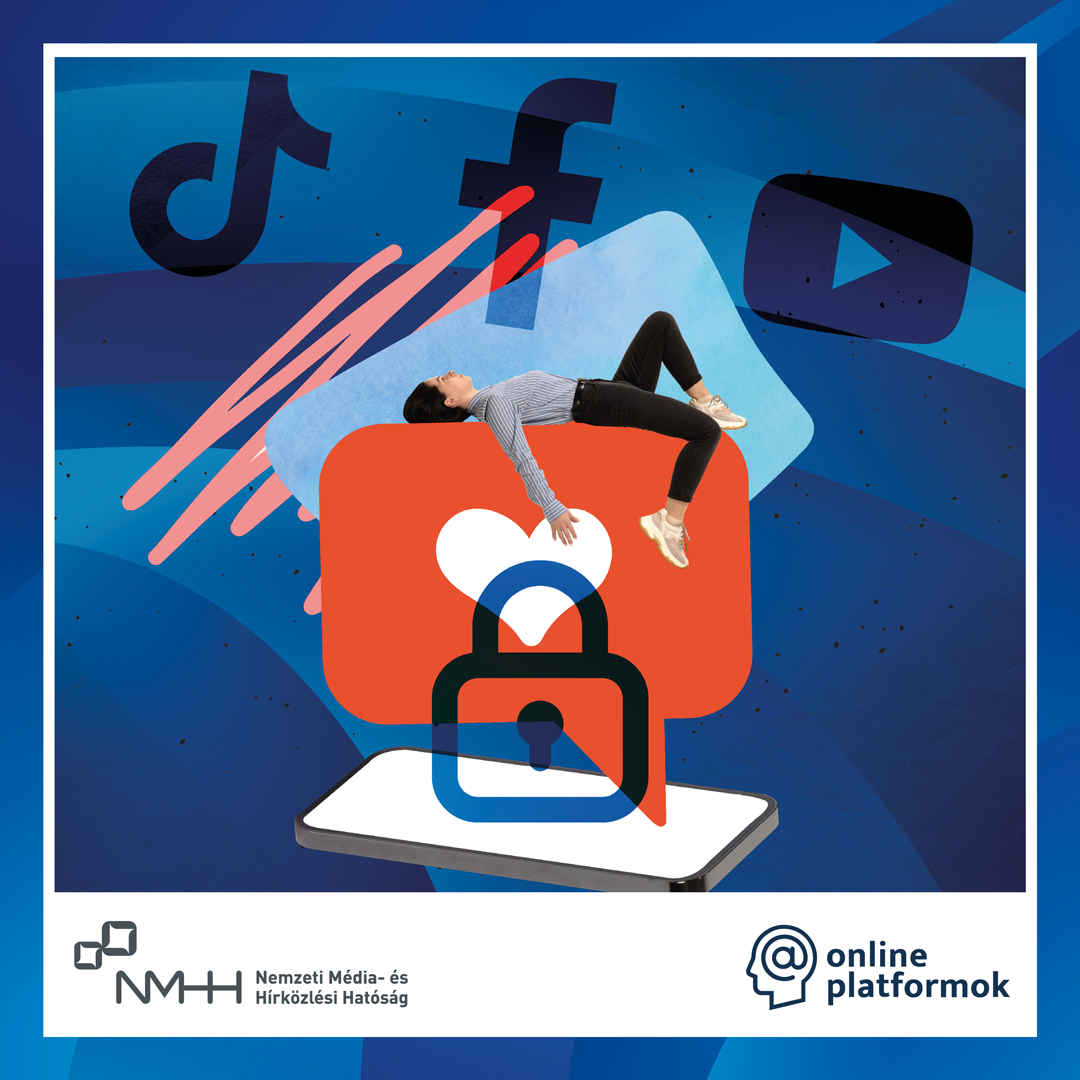Preparation phase is over, it’s time to comply with DSA
Here’s how people’s online lives are about to change
On 25 April 2023 the European Commission identified the giant online platforms and extremely popular search engines that had to comply with the new requirements of DSA by the end of August. Among the 19 giants were two social media platforms highly popular among Hungarian users: Facebook and TikTok. The National Media and Infocommunications Authority (NMHH) highlighted the key changes that may affect the online lives of European – and in turn Hungarian – users.

In 2020 the European Commission announced the creation of the digital services regulation package, a main goal of which was maintaining competitiveness and streamlining digital markets. The package is comprised of two acts announced in October 2022: the Digital Services Act (DSA) and the Digital Markets Act (DMA).
The key idea behind DSA is that Facebook and TikTok both use suggestion systems, profile their users. In short, they collect huge amounts of information about you that they analyze thoroughly and sell. As a result, your news feeds and interfaces have been customized by algorithms; but it doesn’t have to be like that anymore.
“New regulations enable you to choose non-profiling options by opting out of content customization. Opting out means your For You and Live TikTok feeds won’t be based on our personal interests anymore. TikTok will suggest locally relevant or globally popular videos” – said Dr. Gábor Fáczán, Head Of Online Platforms Department at NMHH.
Based on the familiar “Why am I seeing this?” feature, Facebook now informs users via 22 system cards about how their AI systems affect and rank displayed content, and offers the option to disable profiling-based content suggestions.
“Facebook also introduced the newsfeed option to sort the content shared by friends and pages you follow based on chronological order, instead of the default feed algorithm. For example, if you click on the Friends tab you see the posts of your friends in a chronological order. What’s more, on the Favorites tab you can add up to 30 persons or pages, actively teaching the algorithm, customizing your news feed” – added the NMHH expert, also mentioning that reporting illegal content also changes.
“TikTok now offers further reporting options (including hate speech), and you can also report content you believe is illegal according to EEA. The content gets removed if TikTok agrees it is illegal. If TikTok disagrees a dedicated team of legal experts and moderators checks if the content is in violation of local regulations. If necessary, the content becomes restricted in the relevant country. In accordance with DSA, both the reporting user and the content publisher gets notified about the content moderation decision, reasoning, and any remedies. What’s more, TikTok will inform you whether it was the algorithm or a moderator that removed the particular content” – said Dr. Gábor Fáczán.
Another change: It has been ensured on Facebook since February, on TikTok since July that minors between 13 and 17 years of age aren’t shown customized ads on these platforms. At first Facebook, then TikTok will make it possible in their ad libraries to display ads targeting users living in the EU. The system will consider ad targeting metadata (for example, age or gender) as well.
Let’s not forget about Google either. The global giant made a significant investment so that Google complies with every aspect of the rules set by the DSA. Among others, it introduced new features for YouTubers: content producers will be able to appeal decisions removing their contents or restricting their accounts. To comply with DSA regulations about ads and minors, Google – after discussions with parents, teachers, and privacy and child safety experts – disabled the option for users under 18 years of age to receive personalized ads while using Google services. So now this platform is also safer for minors to use.